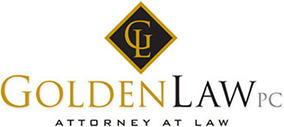BANKRUPTCY: FAQ
If you are thinking about bankruptcy and need to speak with an attorney in Fort Wayne or the surrounding areas of Northern Indiana, the law firm of Golden Law, PC can help. We offer a free consultation to discuss your legal rights and options. At your free consultation, we are pleased to answer all of your questions about bankruptcy. Contact us to set up a meeting today.
Below, we have provided some of the most commonly asked questions about bankruptcy and their answers.
Q- What is Chapter 7 bankruptcy?
A- Chapter 7 bankruptcy completely discharges most forms of unsecured debt. Certain assets may be liquidated in a Chapter 7 bankruptcy; however, people usually are able to keep all of their possessions through a debt reaffirmation and bankruptcy exemptions, which are laws that allow people to protect certain assets from their creditors.
Q- What is Chapter 13 bankruptcy?
A- In a Chapter 13 bankruptcy, you pay back a portion of your debts over a three to five year debt repayment plan. The percentage of your debts that are discharged is based on your ability to pay. Assets are not liquidated by the bankruptcy court trustee in a Chapter 13 bankruptcy. Therefore, Chapter 13 is often the preferred form of bankruptcy for people with significant assets that fall outside the limits protected in a Chapter 7 bankruptcy.
Q- How long is the bankruptcy process?
A- Chapter 7 is a fairly quick process that may take a matter of a few months. Chapter 13 is a longer process because the court oversees the case throughout the debt repayment plan. In either case, however, the automatic stay provides immediate relief from many forms of creditor harassment and collection activity.
Q- What is the automatic stay?
A- From the moment we file your bankruptcy petition with the court, an automatic stay is created that stops most creditors from taking any further collection activity, including wage garnishment, collection calls and home foreclosure.
Q- What debts are dischargeable?
A- Most unsecured debts can be discharged entirely through a Chapter 7 bankruptcy. Unsecured debts include credit card debts, medical bills, car repossession balances, lease break balances, old utility bills, mortgage foreclosure balances, and many other forms of consumer debt.
Q- What assets can I keep?
A-Most of our clients are able to keep their home, car, furniture and all other valued property through bankruptcy exemptions and the process of debt reaffirmation.
Q- Can bankruptcy help me stop a home foreclosure?
A- Yes. A Chapter 13 bankruptcy may allow you to protect your home and stop a home foreclosure. A Chapter 7 bankruptcy may allow you to discharge a loan deficiency if your home was sold by the bank and the proceeds from the sale were not sufficient to pay the remainder of your home mortgage debt.
Q- What is loan stripping?
A- Depending on the facts of your case, you may be able to discharge the debt from a second home loan mortgage through a Chapter 13 bankruptcy. The facts of each case vary depending on the amount of debt that is owed and the fair market value of your home.
Q- Can bankruptcy stop an auto repossession?
A- Yes. Bankruptcy may allow you to stop an auto repossession, wage garnishment and many other forms of adverse creditor actions.
To learn more about bankruptcy and your rights, consult an attorney.
CONTACT GOLDEN LAW, PC
To schedule an appointment with a bankruptcy lawyer at Golden Law, PC, call 260-637-7100.
We are a debt relief agency. We help people file for bankruptcy relief under the Bankruptcy Code.
